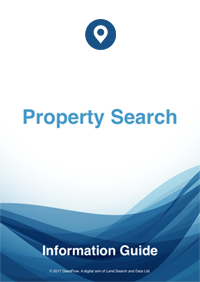Caution Title Register
Contents
Article Summary
Caution Titles exist to protect legal interests of persons who have a claim of some kind in respect of a property that has not yet been registered. A Caution Title consists of a two-part Title Register and a Title Plan. The two parts of the Title Register are the Caution Property Register, and the Cautioner's Register. This articles describes the Caution Title, explains how and why they are created, and shows you how to obtain copies.
Unregistered Properties
An unregistered property is simply a property that has not yet been registered at the Land Registry. This is usually because one of the compulsory registration trigger events has not yet occurred, e.g. the property has not been sold or mortgaged since compulsory registration was introduced for the whole of England and Wales, and the property was previously in an area not subject to compulsory registration.
The Land Registry do not officially know of the existence of unregistered properties, as they have not normally received any information about them. Accordingly they do not have any documents to register. The Land Registry only assign a Title Number to properties, the Titles of which have been investigated, and the Title to which they are satisfied.
Registration of an Interest in an Unregistered Property
Where a person claims to have a legal interest in a property, the nature of which would entitle him to object to an application against first registration until his claim has been dealt with, then the Land Registry will protect that interest by creating a Caution Title. The person making the claim, the Cautioner, must first apply to the Land Registry for a Caution Against First Registration.
Other interests against unregistered properties are protected by various applications to the Land Charges Registry in Plymouth.
Caution Titles
A Caution Title contains two registers, i.e. one Register with two sections (which are themselves referred to as registers). The first Register is a Caution Property Register providing details of the Unregistered Property subject to the Caution. The Cautioner's Register provides details of the Cautioner's Interest.
Caution Property Register
The main contents of the Caution Property Register are:
- A unique Caution Title Number.
- Details of the estate, i.e. freehold or leasehold tenure.
- Details of the property, i.e. its address or if no postal address, a description of the land and a reference to a Caution Title Plan, which identifies the land by edging it in red.
- Statement of the Cautioner's claim which is obtained from a Statutory Declaration signed by him, or from his conveyancer's certificate.
- Details of any land within the ownership that is not affected by the claim.
These are the main details included. Other details are much less common, and have not been included here.
Cautioner's Register
The Cautioner's Register contains the name and address of the Cautioner, and the names of any persons consenting to the lodging of the Caution.
Caution Title Plan
A Title Plan is also created showing details of the Cautioned property edged in red.
Obtaining Copies of a Caution Title Register and Title Plan
Application is made by using our Title Register Search, and by including a note in the comments box on the application form that you are seeking a Caution Title Register and Plan. Thus, if the property has since become registered (in which case the Caution Title will have been removed) you will receive a copy of the actual Title Register and Title Plan; if the Caution Title is still existing, that is what you will receive.
Title Register
The Land Registry Title Register holds data relating to the property ownership, purchase price, mortgage, tenure, covenants, rights of way, leases and class of title.
£19.95Title Plan
The Title Plan shows an outline of the property and its immediate neighbourhood, and uses colours to identify rights of way, general boundaries and land affected by covenants.
£19.95Lease & Lease Plans
The Lease and its Lease Plan usually form one document and are both provided for the one fee. They are very useful in resolving disputes, particularly with car parking and other shared areas.
£19.95


